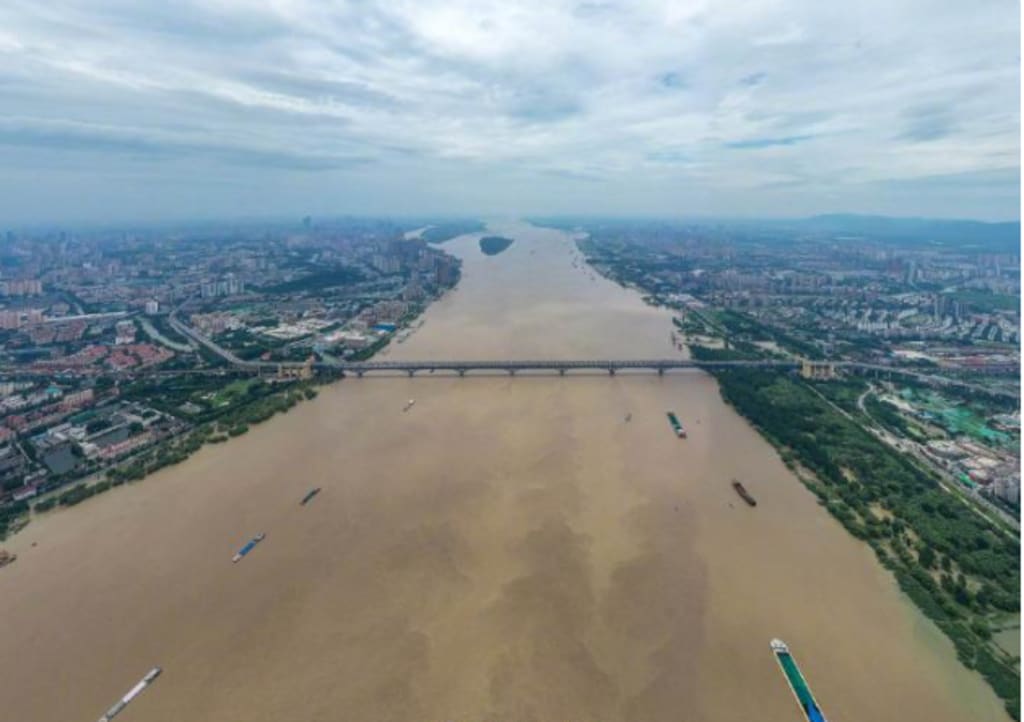A climate tipping point in 2022 with domestic temperature anomalies that will make the north a better place to live?
Climate tipping point in 2022

I'm sure we all have a clear sense that the Earth's climate has changed radically - in other words, the planet has changed. This year, in particular, the climate has become more variable and seems to have reached a tipping point.
Especially in recent months, natural disasters such as droughts, floods, heat, mountain fires, and earthquakes have been frequent and have awakened many sleeping people to the serious implications of climate anomalies.
Climate anomalies, which do not seem to be taking a particularly serious toll on humanity, are bound to have unbearable consequences if they continue for a long time.
Earlier this year, many people began to migrate north because the weather in the south was too horrible for humans to live in. Instead, even as temperatures rose, the north remained in a relatively suitable range and people began to live in the north. But is there a scientific basis for this practice?
The current figures show that global temperatures are indeed much warmer than before, with a significant temperature rise, especially in places such as Europe, which has experienced terrible heat not seen in a thousand years, beating the historical heat record by 1.34 degrees Celsius. The persistent high temperatures, accompanied by drought disasters, have had an extremely serious impact on the lives of residents.
Similarly, Africa is also experiencing terrible heat. Africa is perceived by everyone as an extremely hot region. What kind of horrible conditions will it be if it experiences high temperatures again? Reports say that August in Africa became the hottest month in almost 43 years, breaking historical records.
Asia was not spared either, with places such as Shanghai, Sichuan and Chongqing also experiencing sustained horrific heat with temperatures exceeding 40 degrees Celsius.
The stark statistics tell us that the climate has changed dramatically this year, with the Earth's tipping point emerging and temperatures getting warmer by the day.
The article in Science magazine also points out that the Earth's climate has changed dramatically, with the critical temperature point almost doubling from 9 degrees to 16 degrees. It is clear that the Earth's climate does need to be controlled by us, otherwise it is likely to be a threat to humanity.
Breaching temperature thresholds often means serious consequences, if the areas where temperatures are currently breaching thresholds include Greenland and West Antarctica.
The instant collapse of a secondary glacier is the best proof that temperatures in these two regions have reached the tipping point. The melting of Greenland's glaciers and the melting of the permafrost will have a serious impact on the natural environment and climate.
If this trend continues, the climate problem will only get worse and humans may be able to continue to survive on the planet in the future. The only way to change this outcome may be to reverse the climate trend, but mankind's current means do not seem to be able to stop the warming.
Hence the idea of moving to the north. After all, global warming is inevitable in China.
Northern China is not as cool as everyone thinks. On the contrary, the north is among the 17 provinces and cities with the highest average temperatures in the country. Gansu, Henan, Ningxia, and Qinghai, for example, are all part of the north, but they are all experiencing unusually high temperatures too. There is no denying that no matter how bad the north is, the climate in summer is better than in the south.
But looking at the droughts, we will see that most of them will occur in the Yangtze River basin, compared to the Yellow River basin which is relatively calm and has relatively few droughts. So it looks like life will be calmer in the north. In addition, some northern areas have been able to grow some southern grains in wet conditions.
It does look habitable. But, as many people can see by the data, this is only a small part of the picture. On the contrary, due to the warming climate, much of the north has become drier and evaporation of surface water has accelerated.
Dunhuang, in particular, has only 40mm of annual precipitation but 2000mm of evaporation, losing far more than it replaces. How can there be no drought under these conditions?
It is evident that the temperature in our country is rising and it is not advisable to go to the north to escape the summer heat, which is beginning to deteriorate. We should be acutely aware that the problem of global warming is already serious and that its effects will continue to expand until they reach the entire planet. We must therefore take action to find solutions and a way out for the future of humanity.
About the Creator
Ferrari Ron
Science makes life better






Comments
There are no comments for this story
Be the first to respond and start the conversation.